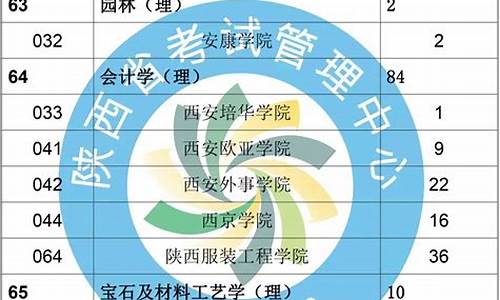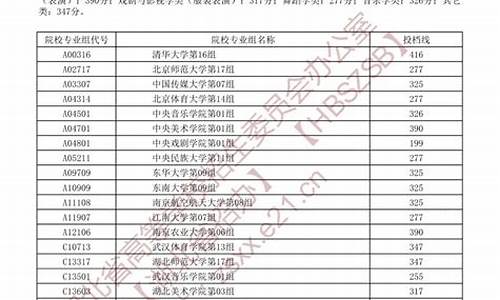您现在的位置是: 首页 > 分数线 分数线
2014高考虚拟语气真题答案_2014高考虚拟语气真题
tamoadmin 2024-05-14 人已围观
简介英语动词中一般有三种语气:用来陈述事实的陈述语气;用来表示命令、请求或劝告的祈使语气;还有用来表示与事实相反的假设、愿望、建议的虚拟语气。历年来,体现英语交际功能并能考查学生对对话语境,说话者语气理解能力的虚拟语气相关试题在高考中不断出现。请看下面一些例题: 1. I didn‘t see your sister at the meeting. If she had come, she would

英语动词中一般有三种语气:用来陈述事实的陈述语气;用来表示命令、请求或劝告的祈使语气;还有用来表示与事实相反的假设、愿望、建议的虚拟语气。历年来,体现英语交际功能并能考查学生对对话语境,说话者语气理解能力的虚拟语气相关试题在高考中不断出现。请看下面一些例题: 1. I didn't see your sister at the meeting. If she had come, she would have met my brother.(NMET'94) 2. When a pencil is partly in a glass of water, it looks as if it were broken. (NMET'95) 3. You didn't let me drive. If we had driven in turn, you wouldn't have got so tired. (NMET'96) 4. Should it rain tomorrow, we should have to put off the visit to the Yangpu Bridge. (上海94 ) 由此可见,掌握好虚拟语气很重要。在学习中,学生一向把它列为难度大、形式多样、不易掌握的语法项目之一。同时,虚拟语气考题也是学生易失分的一个方面。其实,虚拟语气主要是考查学生对虚拟语气谓语动词形式的掌握。而虚拟语气动词形式多样,有should+动词原形;有动词用过去式,过去完成时;有would (could,should,might )+动词原形等等。困难就在学生不能清楚记忆什么情况下用哪种动词形式。于是,针对此问题,笔者就虚拟语气动词形式进行研究、分析,摸索出一定的规律,把虚拟语气根据动词形式归类成如下三种。 一、非真实条件句中的虚拟语气形式(即三个公式)。 1.与现在事实相反的。 条件从句主句 动词用过去式(be的过去式一般用were) 主句 would(could,should,might)+动词原形(should只用于主语为第一人称) 例:If I had time now, I would go to the cinema with you. The boy is not hungry. If he were hungry, he would eat the cake. 2.与过去事实相反的。 条件从句 had+过去分词 主句 would(could,should,might)+have+过去分词(should只用于主语为第一人称) 例:If he had been warned, he would not have taken that food. Luckily he was sent to the hospital immediately. We didn't know her address. If we had known it, we would have sent a note to her. 3.与将来事实可能相反的。 条件从句主句 动词三种形式可用:动词过去式should+动词原形were to+动词原形would(could,should,might)+动词原形 例:If it should rain (rained或were to rain) tomorrow, we would have to put off the visit to the Great Wall. [注意]1.虽然有些句中没有明显的if条件从句,而是通过一些介词短语如but for, without或分词短语或副词otherwise等来表示一个含蓄的条件,相当与一个if条件句,这种情况下要注意主句动词虚拟语气形式。例: But for the efforts of the captain , the ship would have sunk. (If it had not been for the efforts of the captain,...) Given more attention, the trees would have grown better. (If the trees had been given more attention,...) I was very busy then. Otherwise I would have helped you with your work. (I was very busy then. If I had not been busy then,...) 2.在虚拟语气中,如果if条件从句有were或助动词should/had,可以把if省略,把were /should /had移至句首,用倒装句。例: If it had not been for the efforts of the captain, the ship would have sunk with all the passengers.可省略if ,把had移至句首,改为: Had it not been for the efforts of the captain, the ship would have sunk with all the passengers. 二、(should )+动词原形的虚拟语气形式。 下列几种情况用(should) +动词原形的虚拟语气形式。 1.在It is natural(important, necessary等)that...句型。例: It is natural that you (should) say apology to him. It is necessary that he (should) be sent to hospital at once. 2.用于表示命令、建议、要求一类动词后的宾语从句,如suggest,order,insist,demand,request,command等。例: The young man insisted that he(should) be sent to do the work. I suggested that we (should) set off earlier. [注意]当insist表示对已发生过的事物的看法,或当suggest为"说明了","暗示"的含义时,从句用陈述语气而不用虚拟语气。 The Arab insisted that he hadn't seen the camel. His smile suggested that he was happy. 当表示命令、建议、要求等名词作主语时,其表语从句也用(should)+动词原形的虚拟语气形式。这类名词有suggestion,request,order,advice,idea等。例: The officer's order was that his soldiers should repair the defence works at once. His advice is that your father should do more exercises in the morning. 上述名词的同位语从句中也应用(should)+动词原形。例: I did not receive the order that you(should) leave here at once. His suggestion that you (should) keep silent is reasonable. 三、谓语动词用过去时(即过去式,过去完成时)的虚拟语气形式。 在wish, would rather, as if, if only等后面的从句,如表示与现在事实相反,其谓语动词用过去式;如表示与过去事实相反,其谓语动词用过去完成时。其中wish后的宾语从句如表示与将来事实相反,谓语动词则用would或could +动词原形;would rather后的宾语从句如表示与将来事实相反,动词仍用过去式;as if引导的从句如表示与事实相符则不用虚拟语气形式。在虚拟语气中be的过去式一般用were。例: -Did you go to the party yesterday? -Yes, but I wish I hadn't. (gone to the party yesterday) I would rather you went next Sunday. I would rather you hadn't done that. If only you had followed my advice. She loves the child as if he were her own. 经过以上归类,学生就能巧记变化多样的虚拟语气形式,从而更好地掌握运用虚拟语气。
老师叮咛:李辉老师说,语法填空这种题型,考点极其固定,因为百年以来英语语法都没发生过巨大的变化。高考语法考点本来就有限,能用填空这种形式来考的语法考点就更有限了。只要掌握知识点,考试必须妥妥的!下面的虚拟语气“很重要”!经过了全网首席高考英语名师李辉老师团队高度认真的整理校对,无错,可信!可供全国各省高中生打印、学习、背诵!
?
一、语气概述
时态语态一样,语气也是谓语动词的一种形式,它表明说话者的目的和意图。英语中有三种语气:陈述语气,祈使语气和虚拟语气。(有的语法书说语气有四种,即还包括疑问语气)。
eg:
①He doesn ’ t see very well in his right eye. 他右眼视力不太好。(陈述语气)
②Have they ever been to Australia ? 他们去过澳大利亚没有?(疑问语气)
③Please read through the instruction in advance. 请先通读说明书。(祈使语气)
?
二、虚拟语气概述
在英语中,由于说话人的意图不同,动词需用不同的形式,称为语气。虚拟语气是指说话人表示一种假设的情况,一种愿望,怀疑,推测,请求等,即认为动词所表示的动作或状态并非事实。虚拟语气可用于状语从句,名词性从句,定语从句及其他结构中。
?
三、虚拟语气的定义
如果一件事不是真实的,而是虚拟的,就在这个动词身上加一个did。
?
四、非真实条件句中的虚拟语气
A.由 If 引导的两种条件句:
?真实条件句(遵循主将从现原则)
非真实条件句(虚拟语气)
?
以下为 If 在非真实条件句中虚拟语气的形式和用法:
eg:
① If ? I were you ,I would reconsider their advice .
如果我是你的话,我会重新考虑他们的意见。(与现在事实相反)
② You would ?not have caught a cold if you had ? put on more clothes .
如果你多穿了些衣服,你就不会得感冒了。(与过去事实相反)
③ If I were to / should ? do i t ,I would do it in ? different way.
如果我做这件事,我将用不同的方法做。(与将来事实相反)
注意:在非正式文体中,如果 If 条件句中有助动词 were ?/ should ?/ had 可将其提于主语之前(位于句首),再把 If 省掉,即形成部分倒装。
当主从句所表示的时间不一致时,主从句按各自的时间采用相应的谓语形式。
常见的有:
①If I were you ... = Were I you ... ? 如果我是你/我要是你......
? ② If it were not for ... = Were it not for ... ? 如果要不是......
? ③ If it had not been for ...=Had it not been ? for ... 如果当时要不是......
(③主句用: should ? / ? could ? / ? would ? / ? might ?+ have done 的形式,ps.在此结构中,had为助动词。若为谓语动词,则不能省略、倒装。)
?
B.错综时间条件句
主句和从句不是一个时间平台,需要分别在三个时间平台里“选形式”。
从过完用had done,主过将用would do
从用should / were to,主过将完用would have done
eg:
① If the weather had been more favorable ,the crops would be growing still better.
如果天气更好的话,庄稼就会长得跟好些。(从句指过去,主句指现在)
②If I were you ,I would have taken his advice.
我要是你,我就采取了他的建议。(从句指现在,主句指过去)
?
C.含蓄虚拟条件句(if省略句)
有时假设的情况不以条件句的形式表现出了,而是通过一个介词短语或分词或其他方式表现出来。当虚拟条件句的谓语动词含有were / should / had时,if可以省略,这时条件从句要用倒装语序,即把were, should, had等词置于句首,这种多用于书面语。
(1)省略if
Step1:去掉if。
Step2:助系情提到主语之前。
? ? Were I you, I would go.
? ? Had I known about the party, I would have come.
? ? Should I go abroad, I would buy you a gift.
注意:在虚拟主句中,主语只有是第一人称时,才能用should。
(2)根本没有if
有些句子里,没有if,但是有but for(若不是)/ without / under / otherwise / but / or / but that(若不是)等,此时可把它们看做虚拟条件句,然后根据时间平台,选择主句的动词形式。
? ? Without your help, I wouldn’t have passed the exam.
= If you didn’t help me, I wouldn’t have passed the exam.
=But for your help, I would not have passed this exam.
? I don’t have your telephone number, otherwise ? / ? or I would have called you back.
= If I had your number, I would have called you back.
? ? What would you do with a million dollars?
=What would you do if you had a million dollars?
?
D.wish,as if / though和 if only 用法
(1)wish用法如下:
1.表示与现在相反的愿望: 主语?+?wish?(that)...did (were)...
eg: I wish I were a bird.
2.表示与过去相反的愿望: 主语?+?wish?(that)...had done...
eg: I wish I had seen the film.
(注意:如果wish在表达对过去情况的虚拟而不是未实现的愿望时,有
时也可用:主语+wish(that)...would / could have done)
3.表示与将来相反的愿望: 主语?+?wish?(that)...?could / would / might?do
eg: I wish you would do that again.
?
(2)由 as if/though引导的表语从句
虚拟:同wish用法;be在第一,三人称可用were / was。
陈述:表示可能发生的几率很大或被假设为真实的。
?
(3)If only...引导的条件句
(常用感叹的形式)表示强烈的不满,遗憾或愿望,主句常省略,意为:“要是 / 如果......该多好啊 / 就好了!”。(注意:“only if ...”意为:“只要......”,位于句首时采用部分倒装。)
eg:
①If only I could see him once more ! ?我要是再见到他就好了!
②If only we had telephoned him in advance ! 要是事先给他打个电话就好了!
?
E. Suppose / Supposing / providing / provided (that)... / what if...等某些特殊的连词后引导的条件句中(有时无主句),表示与现在或将来事实相反用 did ;表示与过去相反用 had done 。
eg:
①Suppose / Supposing (that) we told her the truth. ?假定我们把事情的真相告诉她。
②What if you came tomorrow instead of today. ?如果我是你明天来而不是今天来呢?
?
F.would rather后的宾语从句:表示愿望或尚未发生的动作。
had / would sooner / rather + that...从句中意为“宁愿”,用did(be动词用were)表示对现在或将来的虚拟;用had done表示对过去的虚拟。
eg:
①She will get home at dinner time, but I would rather she got home a little earlier.
②He got drunk last night. I ’ d rather he hadn ’ t drunk so much.
?
五、名词性从句中的虚拟语气 (should 类虚拟语气 )
即主句含有:建议、命令、请求、要求、愿望、主张等意思时,后面的从句用 (should)+V 原/ should have done的形式。但注意,若从句中含有“竟然,惊讶,诧异 ” 之意时, “ should ” 则不可以省。
(常见简记:一坚持,二命令,三建议,四要求) 其他同下述用法:urge / propose
insist
order / command
advise / suggest / recommend +(that) sb. (should) do
ask / require / request / demand
eg:
①The teacher suggested that we (should) make good use of every minute.?
②He ordered that all the book (should) be sent at once.
③She insisted that she (should) go to the south for her holiday.
注意:
六、 副词性从句中的虚拟语气
A.as if / though用法
虽同wish,但也有一些区别,如下:
as if / though从句时态不受主句限制 。
①在谈论现在情形时用一般过去时。
②在谈论过去情形时用:
Ⅰ.一般过去时:表示过去当时存在的某种状态,但若状态动词后带有持续的时间状语,则要用过去完成时。
eg:
①They talked as if they had been friends for years. ?他们谈起话来,好像是多年的朋友。
②He looked at me as if I were mad. 他看着我,好像我疯了似的。
Ⅱ.过去完成时: 表过去的动作先于主句而发生,即使主句是现在时,as if 从句中的谓语动词也要用 had done。
eg: It seems as if it had gone bad.它闻起来好像坏了。
③在谈论将来情形时用: would (could/might)+do
B.in case / lest / for fear that表“以防,以免”等引导的目的状语中的虚拟语气,其后的形为:(should)+
V原 (但注意in case 句中的should通常不省)。若不用虚拟也可用陈述,即用: 一般现在时或过去时。
C.even if / though “ 即使/纵然/虽然 ”
虚拟:同 if 用法相同。(方法:主句含有情态动词的过去式)
陈述:表示真实情况。
?
七、形容词性从句中的虚拟语气
八、 虚拟语气固定句型
1. Would you mind+主语 + 谓语虚拟? 您是否介意 …?
2. would rather (that) 主语 + 谓语虚拟 宁愿 …
3. It is high time that sb. d id ? / ? (should) do sth. ? 到某人做某事的时间
4. It is necessary ? / ? important ? / ? essential ? / ? strange ? / ? natural ? /
advisable ?/ surprising ?that sb. (should) do sth .
5. It is a pity ? / ? duty ? / ? shame ? / ? regret that sb. (should) do sth.
6 But for ? / ? Without ? + ? sth. ? +主语+谓语虚拟 要不是…
7. If only+主语 + 谓语虚拟 ? 要是…就好了!
8.主句+ as if ? / ? as though +主语+谓语虚拟 ? 就好像…
?
九、情态动词+have done
could / mig ht have done ? 本来能做却没做
s hould ? / ? ought to have done ? 本该做而实际上没做(抱怨和责备) ?
should not / ought ?not to have done 本不该做而做了
needn ’ t have done 本不必做而做了
?
十、虚拟语气的其他用法
(1)表示过去本打算做而实际上没有做。
句型:had done (be / intend / think / mean / plan / hope etc) to do
?= V-ed + to have done ,would love / like to have done
(2)had hoped表过去未实现的愿望,译为“要想,希望 … ”,从句谓语常用“would +V原”。
eg: He had hoped that the family would come before his granny came.———2013年湖北高考
(3)may(might) as well + V原 ,译为“不妨,倒不如”,表示劝说、建议、劝告。
若其后带有某种消极情绪时,常用:might.
[if !supportLists](4)?[endif] 表示祝愿、命令的简单句中。常用“may +主语+动词原形”。
eg:
①Long may you live.
②May you have a good journey!
(5)表示对过去事情的懊悔时,谓语用“should + have + 过去分词”。
eg: You should have returned the money to Mary.
?
十一、 虚拟语气解题常用技巧
1.找固定句型 。
2.主过将从过 ; 主过将完从过完 。
?
十二、虚拟用法形式总结
含三种:
①所有含if的从句(除what if … 外)。
②wish从句。
含两种:
①某些特殊连词后的条件句。
②what if … 从句。
③would rather从句。
④定从中的虚拟。
含一种:
①含蓄虚拟语气(情+have done / do)。
②名词性从句(除 wish 外)与表“ 以防 ”意义的条件句中的虚拟一样(should+V原)。









